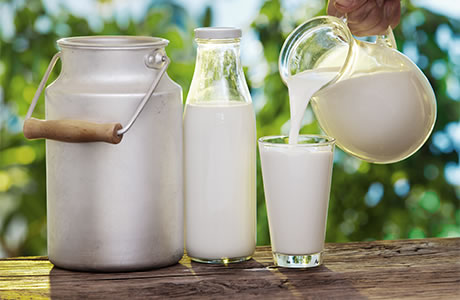Unveiling the Nutritional Marvel: Buffalo Milk Nutrition Facts

Welcome to the enlightening journey of uncovering the nutritional treasure trove that is buffalo milk. In this comprehensive article, we delve deep into the intricacies of buffalo milk nutrition facts, shedding light on its composition, health benefits, and culinary applications. Let’s embark on this informative voyage and unravel the secrets behind the wholesome goodness of buffalo milk.
Buffalo Milk Nutrition Facts:
Buffalo Milk: A Nutrient Powerhouse
Buffalo milk stands as a nutritional powerhouse, boasting a rich profile of essential nutrients vital for overall well-being. Packed with protein, calcium, vitamins, and minerals, it serves as a nourishing elixir for the body.
Protein Prowess of Buffalo Milk
Among its notable attributes, buffalo milk is renowned for its high protein content. With a composition richer in protein compared to cow’s milk, it serves as an excellent source for meeting daily protein requirements. Whether consumed fresh or transformed into dairy products, buffalo milk offers a substantial protein boost.
Also Read: Geometry Spot: Exploring The Fascinating World Of Geometric Learning And Games
Calcium Content: Strengthening Bones and Beyond
One of the standout features of buffalo milk is its impressive calcium content. Calcium plays a pivotal role in maintaining bone health, aiding in bone density and strength. Incorporating buffalo milk into your diet can contribute significantly to fortifying your skeletal structure and preventing conditions like osteoporosis.
Vitamin-rich Composition
Buffalo milk encompasses a spectrum of essential vitamins, including vitamin A, vitamin D, and vitamin B12. These vitamins play diverse roles in supporting various bodily functions, from promoting vision and immune health to facilitating neurological processes. Embracing buffalo milk in your diet ensures a wholesome intake of these vital vitamins.
Mineral Bounty: Potassium and More
In addition to vitamins, buffalo milk offers a generous supply of minerals, with potassium taking the spotlight. Potassium aids in regulating blood pressure, supporting heart health, and facilitating muscle function. With buffalo milk, you not only savor its creamy goodness but also reap the benefits of essential minerals for optimal health.
Healthy Fats in Buffalo Milk
Contrary to popular belief, the fat content in buffalo milk comprises healthy fats, including omega-3 fatty acids. These fats contribute to cardiovascular health, cognitive function, and inflammation regulation. Enjoying buffalo milk in moderation can be a wholesome addition to a balanced diet.
Lactose and Dairy Alternatives
Buffalo milk presents a viable alternative for individuals with lactose intolerance. With lower lactose levels compared to cow’s milk, it offers a gentler option for those seeking dairy alternatives. Whether consumed as a standalone beverage or incorporated into culinary creations, buffalo milk caters to diverse dietary preferences.
Culinary Applications
Beyond its nutritional prowess, buffalo milk shines in culinary realms, enhancing the flavor and texture of various dishes. From creamy desserts to savory sauces, buffalo milk lends its distinct richness, elevating gastronomic experiences. Explore the culinary versatility of buffalo milk and unleash your creativity in the kitchen.
FAQs (Frequently Asked Questions):
- What are the primary nutrients found in buffalo milk?
- Buffalo milk is rich in protein, calcium, vitamins (A, D, B12), minerals (potassium), and healthy fats.
- Is buffalo milk suitable for individuals with lactose intolerance?
- Yes, buffalo milk contains lower levels of lactose compared to cow’s milk, making it a suitable option for lactose-intolerant individuals.
- How does buffalo milk contribute to bone health?
- With its high calcium content, buffalo milk aids in maintaining bone density and strength, thereby promoting overall bone health.
- Can buffalo milk be used in cooking and baking?
- Certainly! Buffalo milk adds a creamy richness to dishes and is ideal for both cooking and baking applications.
- What distinguishes buffalo milk from cow’s milk?
- Buffalo milk boasts a higher protein content, richer flavor, and creamier texture compared to cow’s milk.
- Is buffalo milk readily available in markets?
- While not as widespread as cow’s milk, buffalo milk can be found in select markets and specialty stores, offering consumers access to its nutritional benefits.
Conclusion:
In conclusion, buffalo milk emerges as a nutritional powerhouse, brimming with essential nutrients and offering diverse health benefits. From its protein prowess to its rich vitamin and mineral content, buffalo milk stands as a wholesome dairy alternative catering to various dietary needs. Embrace the goodness of buffalo milk and embark on a journey towards holistic well-being.




